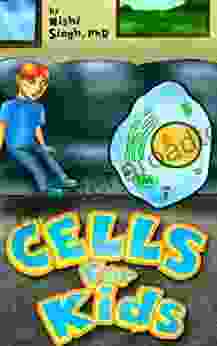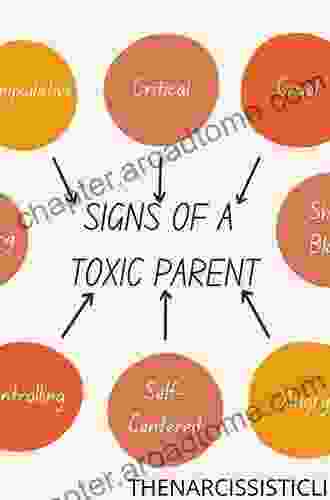Exploring Real Struggles Through Fictional Characters

Have you ever read a book that made you feel like you were living someone else's life? A book that made you see the world through a different perspective? A book that inspired you to make a change in your own life?
4.7 out of 5
| Language | : | English |
| File size | : | 1225 KB |
| Text-to-Speech | : | Enabled |
| Screen Reader | : | Supported |
| Enhanced typesetting | : | Enabled |
| Word Wise | : | Enabled |
| Print length | : | 234 pages |
If so, then you've experienced the power of storytelling. Storytelling is a powerful tool that can be used to educate, entertain, and inspire. It can help us understand ourselves and the world around us better.
And one of the most effective ways to tell a story is through the use of fictional characters. Fictional characters can allow us to explore real-world problems and issues in a safe and controlled environment. They can help us to understand the experiences of others and to develop empathy for people who are different from us.
The Power of Storytelling
Storytelling is a fundamental part of the human experience. We've been telling stories to each other for thousands of years, and for good reason. Stories can entertain us, teach us, and help us make sense of the world around us.
When we read a story, we're not just reading words on a page. We're entering into a world that the author has created for us. We're experiencing the events of the story through the eyes of the characters. We're feeling their emotions, their joys, and their sorrows.
This is what makes storytelling so powerful. It allows us to experience things that we might never experience in real life. It allows us to see the world from different perspectives and to understand the experiences of others.
The Use of Fictional Characters
Fictional characters are a powerful tool that can be used to tell stories about real-world problems and issues. By creating characters that are relatable and sympathetic, authors can help readers to understand the experiences of others and to develop empathy for people who are different from them.
For example, the character of Atticus Finch in Harper Lee's novel "To Kill a Mockingbird" is a powerful example of a fictional character who can help readers to understand the issue of racism. Atticus is a white lawyer who defends a black man who has been accused of raping a white woman. The novel explores the racial tensions of the time and the prejudice that black people faced. Through Atticus's character, Lee is able to show readers the injustice of racism and the importance of standing up for what is right.
Fictional characters can also be used to explore issues that are difficult to talk about directly. For example, the character of Holden Caulfield in J.D. Salinger's novel "The Catcher in the Rye" is a teenage boy who is struggling with depression and alienation. The novel explores the challenges of growing up and the pressures that young people face. Through Holden's character, Salinger is able to show readers the importance of mental health and the need to reach out for help when you're struggling.
The Importance of Empathy
Empathy is the ability to understand and share the feelings of another person. It's a key component of compassion and social justice. When we have empathy for someone, we are better able to understand their perspective and to see the world from their point of view.
Fictional characters can help us to develop empathy for people who are different from us. By reading about the experiences of others, we can learn about the challenges that they face and the ways in which they overcome them. This can help us to break down stereotypes and to see the world in a more nuanced way.
Empathy is essential for creating a more just and compassionate world. When we have empathy for others, we are more likely to help them and to stand up for their rights. We are also more likely to be tolerant of people who are different from us and to work together to create a more equitable society.
Fictional characters are a powerful tool that can be used to explore real-world problems and issues. They can help us to understand the experiences of others, to develop empathy, and to create a more just and compassionate world.
If you're looking for a way to learn more about the world around you, pick up a book and start reading. You might just be surprised by what you discover.
4.7 out of 5
| Language | : | English |
| File size | : | 1225 KB |
| Text-to-Speech | : | Enabled |
| Screen Reader | : | Supported |
| Enhanced typesetting | : | Enabled |
| Word Wise | : | Enabled |
| Print length | : | 234 pages |
Do you want to contribute by writing guest posts on this blog?
Please contact us and send us a resume of previous articles that you have written.
 Book
Book Novel
Novel Page
Page Chapter
Chapter Text
Text Story
Story Genre
Genre Reader
Reader Library
Library Paperback
Paperback E-book
E-book Magazine
Magazine Newspaper
Newspaper Paragraph
Paragraph Sentence
Sentence Bookmark
Bookmark Shelf
Shelf Glossary
Glossary Bibliography
Bibliography Foreword
Foreword Preface
Preface Synopsis
Synopsis Annotation
Annotation Footnote
Footnote Manuscript
Manuscript Scroll
Scroll Codex
Codex Tome
Tome Bestseller
Bestseller Classics
Classics Library card
Library card Narrative
Narrative Biography
Biography Autobiography
Autobiography Memoir
Memoir Reference
Reference Encyclopedia
Encyclopedia Mirabai Starr
Mirabai Starr Ole Hallesby
Ole Hallesby Yosef Hayim Yerushalmi
Yosef Hayim Yerushalmi Miranda Ross
Miranda Ross Neil Degrasse Tyson
Neil Degrasse Tyson Mohammed F Daqaq
Mohammed F Daqaq Robert C Fuller
Robert C Fuller Randy R Rapp
Randy R Rapp Robert W Audretsch
Robert W Audretsch Nadia Davis
Nadia Davis Michael Barton
Michael Barton Nik Marcel
Nik Marcel Wallea Eaglehawk
Wallea Eaglehawk Michael Rawson
Michael Rawson Robert Emmet Hernan
Robert Emmet Hernan S L Sherbert
S L Sherbert Nick Redfern
Nick Redfern Morgan Rowe
Morgan Rowe Roberto Gemori
Roberto Gemori Mitali Perkins
Mitali Perkins
Light bulbAdvertise smarter! Our strategic ad space ensures maximum exposure. Reserve your spot today!

 Howard PowellEvolve From Heartbreaks to Hearts Healed: A Transformative Journey of Love,...
Howard PowellEvolve From Heartbreaks to Hearts Healed: A Transformative Journey of Love,... Tom ClancyFollow ·3.1k
Tom ClancyFollow ·3.1k Duane KellyFollow ·7.7k
Duane KellyFollow ·7.7k Henry JamesFollow ·11.1k
Henry JamesFollow ·11.1k Chance FosterFollow ·9.6k
Chance FosterFollow ·9.6k Sean TurnerFollow ·4.2k
Sean TurnerFollow ·4.2k Gustavo CoxFollow ·6.6k
Gustavo CoxFollow ·6.6k Aaron BrooksFollow ·18.8k
Aaron BrooksFollow ·18.8k Jermaine PowellFollow ·16.5k
Jermaine PowellFollow ·16.5k

 Samuel Beckett
Samuel BeckettPortrait of the Plague Doctor: A Chilling Tale of Fear...
Prologue: A...

 Elliott Carter
Elliott CarterTrends in Modeling and Simulation Studies in...
Unveiling the Convergence of...

 Natsume Sōseki
Natsume SōsekiCells For Kids: Science For Children
Unlock the Microscopic...

 Anthony Wells
Anthony WellsUnlock the Power of Understanding: Embrace the African...
Embark on a Journey of Truth,...

 Forrest Reed
Forrest ReedBreaking Free: Healing from Toxic Relationships Between...
Are you struggling...
4.7 out of 5
| Language | : | English |
| File size | : | 1225 KB |
| Text-to-Speech | : | Enabled |
| Screen Reader | : | Supported |
| Enhanced typesetting | : | Enabled |
| Word Wise | : | Enabled |
| Print length | : | 234 pages |












